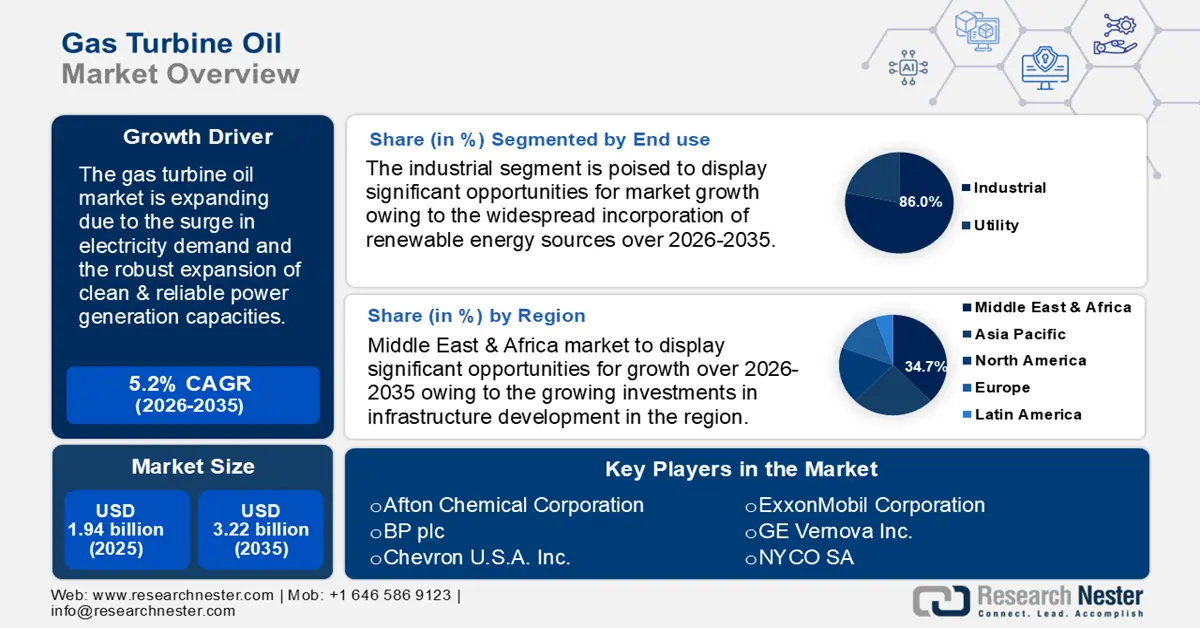Gas Turbine Oil Market Outlook:
Gas Turbine Oil Market size was over USD 1.94 billion in 2025 and is anticipated to cross USD 3.22 billion by 2035, growing at more than 5.2% CAGR during the forecast period i.e., between 2026-2035. In the year 2026, the industry size of gas turbine oil is assessed at USD 2.03 billion.
The gas turbine oil market is expanding owing to the surge in electricity demand and the increased expansion of clean & reliable power generation capacities. The International Energy Agency (IEA) reported that by 2026, almost half of the electricity generated worldwide is anticipated to come from low-emission sources, up from slightly less than 40% in 2023. By early 2025, renewables are expected to surpass coal as the primary source of power generation, accounting for almost one-third of the total. These oils are necessary for gas turbines widely utilized in power plants, aircraft, and industrial uses, to run smoothly and efficiently.
The market has been in a constant state of reform as several end user operational pitfalls and challenges are being addressed. Varnish and sludge formations have a long history in machinery, but in recent times it has taken center stage and the principal reason behind the noticeable increase in sludge formation is the use of traditional Group I base oils. Heavy duty industries are transitioning toward advanced Group II and Group III base oils with effective antioxidant properties. The switch has facilitated the operation of gas turbines with oxidative and thermal stability and new added-performance capabilities.
Furthermore, the fast-growing market for power generation underscores the importance of focusing on this category, thus, positively impacting crude oil manufacturing and companies are capitalizing on this trend. Earlier this year, Petrobras announced that it would charter approximately 200 OSVs by 2028 to increase the fleet. Meanwhile, the company launched ROV support vessels to charter 12 locally built units. In September 2024, it mulled its market position with the launch of a lubrication plant in Rio de Janeiro, marking another milestone in its turbine oil production.
Gas turbines use case was pioneered with the development of aeronautical jet engines. Owing to their outstanding operational capabilities in the peak load range, they are now a crucial component in an array of industrial applications. Gas turbines are typically used in the electrical and power generation sector along with the oil and gas industry. The market has opened up new opportunities for additive manufacturers, allowing the use of 3D metal printing to develop gas turbine engines. Aurora Labs (A3D) has progressed the innovation of a 200N Class micro gas turbine using 3D printing. A3D managed to consolidate 18 components of the engine into a single printed part, which reduced its weight by 20%. The penetration of technology, implored by the rising demand for cost-effective and energy-efficient gas turbines is fostering gas turbine oil market growth.


